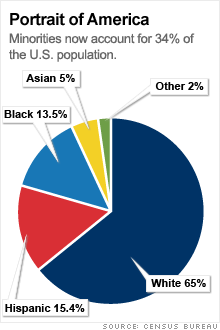Ehrenreich moves her project to Maine where she finds that the jobs are plentiful. The town where she stays at is mostly accompanied by an all White population. She finds that the workers, managers, and even maids are all White. She sees this as an interesting place where she will not be questioned and will be equally skilled as the other people around her. She also finds a hard time finding a place to live and ends up renting an apartment for $120. Ehrenreich manages to find two jobs, one as a maid and the other at a retirement home for the elderly and disabled.
As a maid she is opened to a new perspective about the profession. For example, she realizes that the maids don't actually clean properly for their clients. They have to make it appear clean but not actually clean the rooms. This is because the owners want to save money and time. They only care about what is visible to the eyes and sensed by the nose. They specifically tell maids to only use half a bucket of water and wipe down only what can be seen by customers. Safety and concern for customers isn't really an issue. They just want to make money and conserve as much equipment that they can in order to increase profits. By working on their hands and feet in front of the customers the maids are able to deceit them. They seem like they are actually cleaning and getting rid of harmful bacteria but as before it is all about appearances. If the customer sees a maid wipe somewhere they assume it is clean and germ free but in reality it is not. Their job is to mask the actual dirtiness of the room not rid it of the messes.
As Ehrenreich soon realizes, becoming a maid has degraded her social "class" in society. People often look upon maids in pity and sorrow. They feel bad that that person is doing such in honorable work. They woman at the store fails to look at her because she feels higher than Ehrenreich. The woman doesn't want to face eye contact with such a lowly classed worker. This shows the degrading work of minimum wage. People often treat you like dirt just because if what you do. They usually aren't trying to be mean but within themselves they feel a sense of superiority and in result, treat you lowly.
Maids have become a social class equal to minorities and people in poverty merely because of the work that they do. As minorities often get the same treatment as maids. Where normal people often treat them as a lower class. They feel pity and come to brash conclusions about someone. As in the text it says, "Maids, as an occupational group, are not visible, and when we are seen we are often sorry for it". This incorporates all these social classes difficulties in our society. It means that these people are never seen or taken care of. People don't ever think about their situations and when they do see them, their thoughts of how sorry and sad their life is.


No comments:
Post a Comment